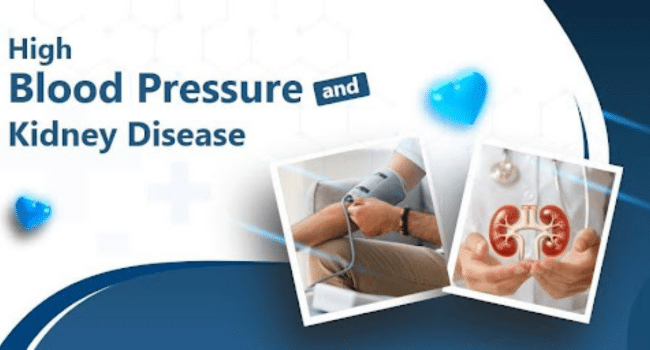Table of Contents
Did you know that high blood pressure (also called hypertension) can slowly damage your kidneys without any clear symptoms? Many people are unaware that these two health problems are closely connected. Consistently high blood pressure puts extra pressure on the tiny vessels inside your kidneys, which can weaken them over time. As a result, your kidneys may struggle to filter out waste and toxins from your blood as they should. If this continues for a long time without treatment, it can cause kidney disease or even lead to kidney failure.
At Dr Lal PathLabs, we believe that early testing and awareness can help prevent serious problems. A kidney function test or kidney test can help detect early signs of damage, even before symptoms appear. In this blog, we’ll explain how high blood pressure affects the kidneys, how kidney problems can raise your blood pressure, and which tests for kidney function can show if your kidney health is improving. Understanding this connection is an important step in staying healthy and in control of your well-being.
How does high blood pressure affect your kidney
- High BP weakens and narrows kidney arteries
- Kidneys can’t filter waste properly
- Leads to chronic kidney disease
- Sign of kidney damage (proteinuria)
- Worsens both kidney function and BP
- May require dialysis or transplant
- Affects BP regulation further
- Damaged kidneys stress the heart
Who’s at risk? Common causes and risk factors
- Uncontrolled high blood pressure: Gradually damages the blood vessels in the kidneys.
- Diabetes: Major cause of kidney damage when blood sugar is not managed.
- Family history: Increases risk if relatives have kidney disease or hypertension.
- Age (60+): Kidney function naturally declines with age.
- Ethnicity: Higher risk among African American, Hispanic, Asian, and Native American groups.
- Overweight or obesity: Adds strain on kidneys and raises blood pressure.
- Smoking: It lowers blood flow to the kidneys and intensifies existing conditions.
- Sedentary lifestyle: Linked to obesity, diabetes, and high blood pressure.
- Long-term use of certain medications: Especially NSAIDs and some antibiotics.
Which blood tests best indicate improving kidney function?
1. Creatinine: Creatinine levels reflect how well your kidneys are filtering waste. Lowering creatinine toward the normal range indicates improved kidney function.
2. Estimated Glomerular Filtration Rate (eGFR): eGFR is the most reliable overall measure of kidney function. Increasing eGFR values show better kidney filtering capacity.
3. Urea (Blood Urea Nitrogen – BUN): Lower or stable values within the normal range suggest good kidney function, although BUN can be influenced by other factors like hydration or protein intake.
Other tests related to kidney health but less direct:
- Potassium: Elevated potassium can indicate impaired kidney function or other issues but isn’t a primary kidney function marker.
- Sodium, Calcium, Phosphorus, Albumin: Usually monitored to assess overall health and complications related to kidney disease.
Creatinine and eGFR are the most reliable blood tests to track improvement in kidney function. Ideally, creatinine should decrease, and eGFR should increase as kidney function improves. Urea/BUN also provides supportive information.
Why can high blood pressure lead to kidney failure?
- High blood pressure damages and narrows kidney blood vessels
- It harms the kidneys’ filtering units (glomeruli)
- Persistent pressure causes scarring and weakens kidney tissue
- Kidneys retain fluid, raising blood pressure further
- This cycle worsens damage, leading to kidney failure
Protecting Your Kidneys Through Blood Pressure Control
- Follow your doctor’s guidance without skipping doses.
- Try to keep your daily sodium intake below 2,300 mg, or even lower if recommended.
- Focus on fruits, vegetables, whole grains, and lean proteins.
- Engage in at least 30 minutes of moderate exercise on most days of the week.
- Reduces strain on both your heart and kidneys.
- Improves circulation and reduces further kidney damage.
- Excess drinking can raise blood pressure and harm kidneys.
- Incorporate relaxation methods such as meditation, yoga, or deep breathing into your routine.
- Especially important for those with diabetes.
Does kidney problem cause hypertension or vice versa?
- Both conditions are interrelated and influence each other
- Hypertension can cause kidney problems by damaging the small blood vessels in the kidneys, reducing their function
- Kidney problems can cause hypertension by impairing the kidneys’ ability to regulate fluid, salt, and blood pressure
- This creates a vicious cycle where each condition worsens the other
- Proper blood pressure management is crucial to prevent or slow down kidney damage and hypertension progression
You can book a Renal Function Test easily at Dr Lal PathLabs to check your kidney health.
